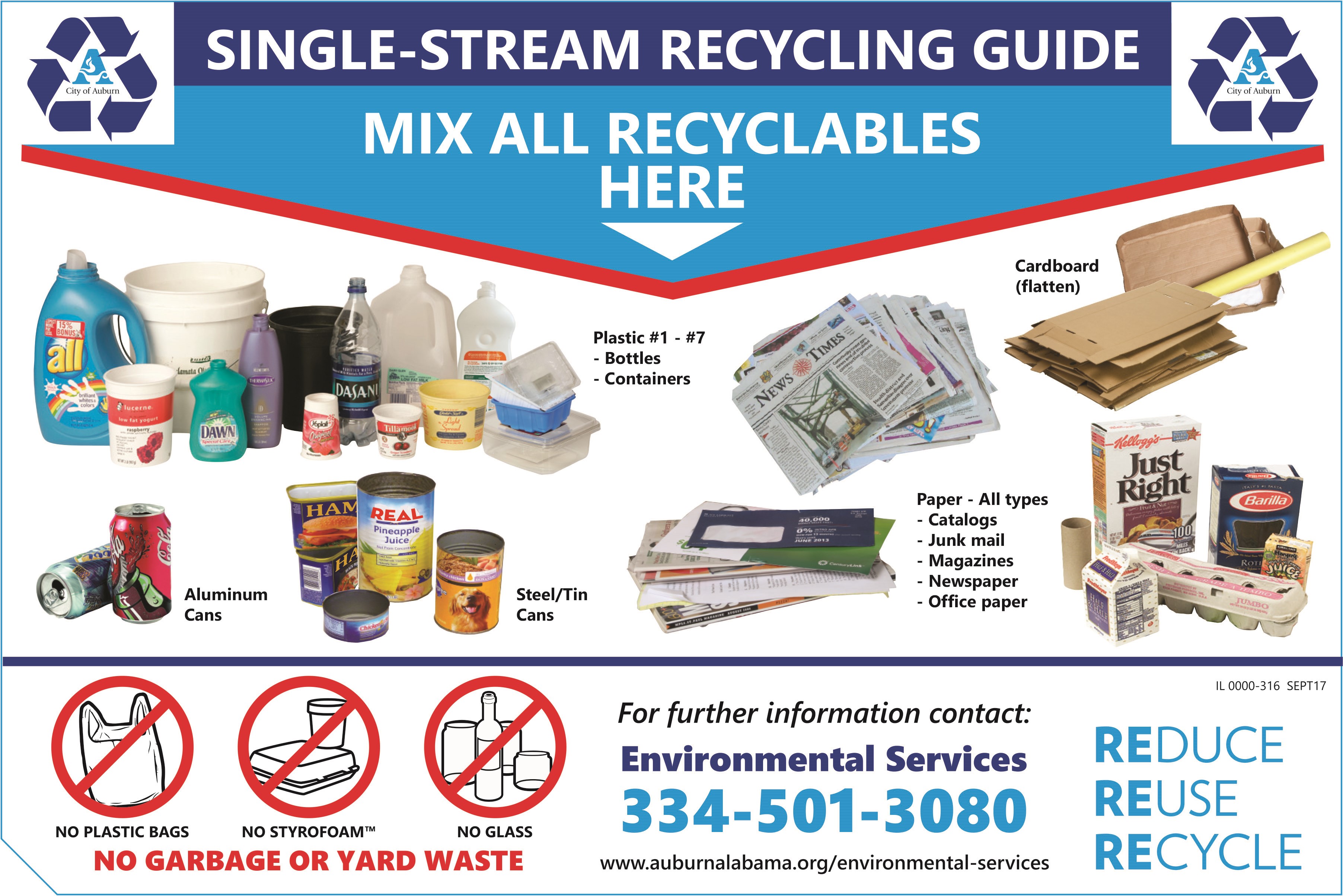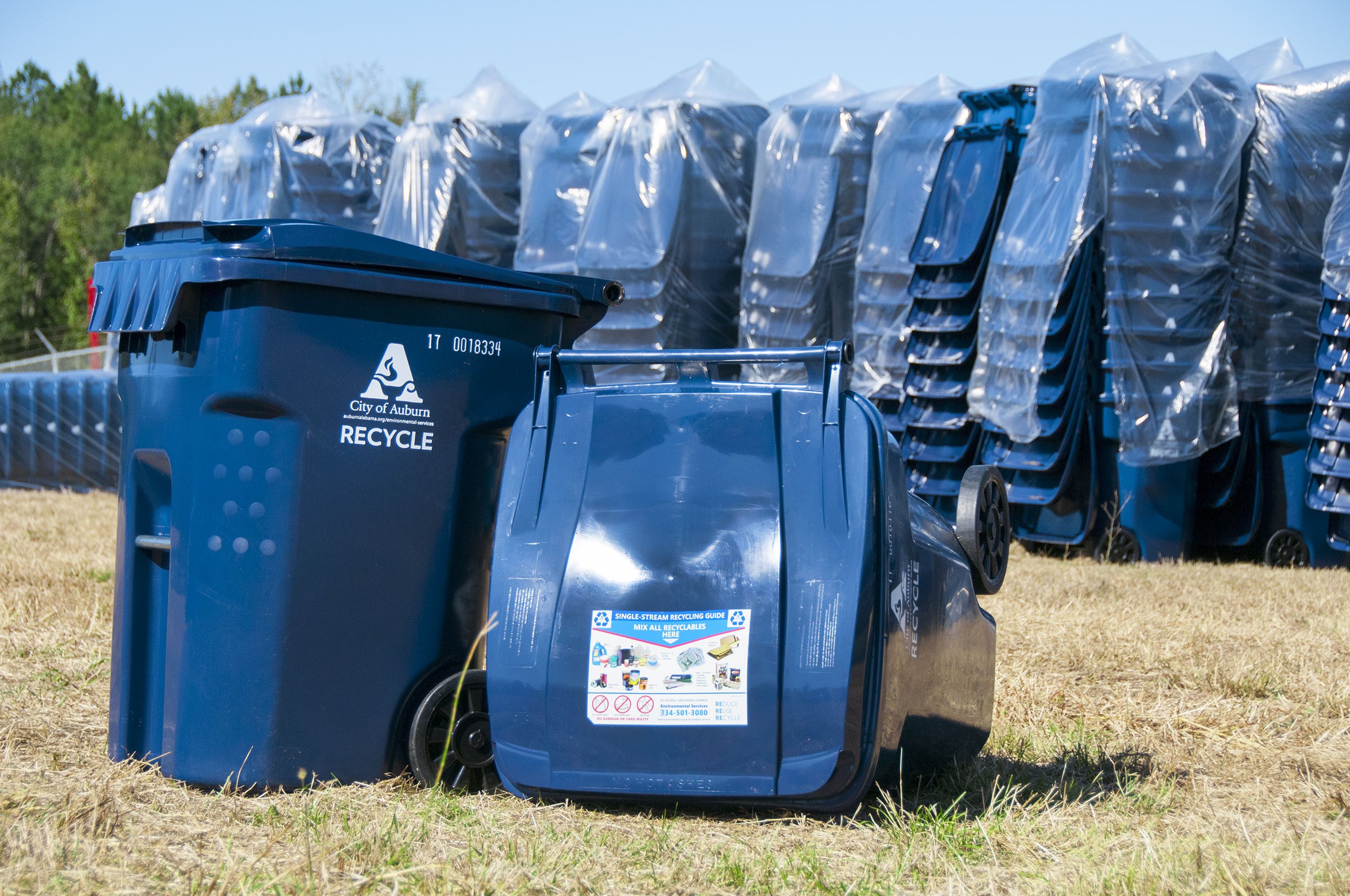Recycling
Single-stream recycling comes to Auburn
Years of public input and planning and months of intensive work and preparation culminated in the launch of the Auburn’s new single-stream recycling program in December 2017, which allows customers to place all recyclables in one 95-gallon cart.
5,600 residents made up the first phase of the program and began recycling materials through the program on Dec. 4, 2017. All residents, whether they are part of the initial rollout phase of the program or not, resumed plastics recycling the same week.
Those not included in the first phase may recycle through the sorted curbside program for cans, paper and plastics. Bags are no longer provided for curbside plastic recycling, but residents may sort plastics into bins, milk crates, boxes or other containers for pickup. Plastics will also be accepted at the Recycling Drop-Off Center at 365-A N. Donahue Drive.

Acceptable single-stream materials are:
- Aluminum cans
- Flattened cardboard
- All types of paper
- Plastic: #1-7, including plastic bottles and food containers; no plastic bags or toys
- Steel and tin cans
Glass, Styrofoam and other materials not listed above may NOT be recycled through the single-stream program since they contaminate the single-stream recycling sorting process. We will continue accepting glass at the Drop-Off Center.
The program began with 5,600 carts. The City has applied for a grant to purchase more carts and plans to expand single-stream recycling to all interested customers in 2018.
The decision to switch to single-stream recycling was the result of resident input and an ongoing analysis of best recycling practices. Direct input from residents and data from the annual Citizen Survey revealed that residents did not want to sort their recycling. In 2017, the City applied for and received a $288,000 grant to help implement single-stream recycling.
Because of its convenience, curbside recycling programs that transition to the single-stream method tend to see increases in participation at a faster rate than programs that do not use single-stream. One Alabama city that recently made the transition to single-stream carts realized an increase in participation of 26 percent and material recovery of roughly 40 percent.
The program will also lower the cost of recycling compared to our former source separation method. The larger, automated collection trucks used for single-stream require fewer employees to operate, increase worker safety and improve route efficiency. Single-stream recycling also decreases landfill disposal costs by decreasing household garbage.


